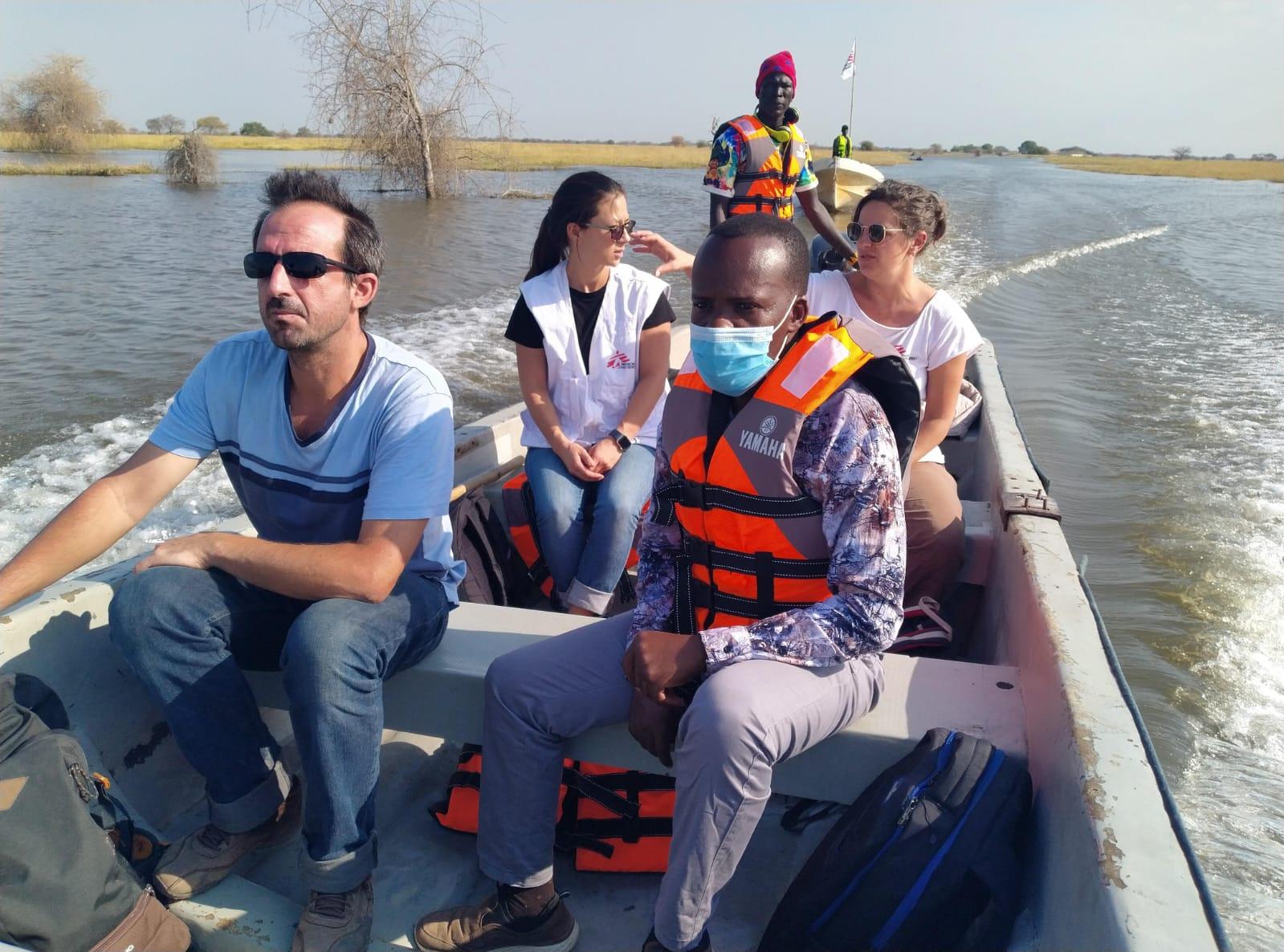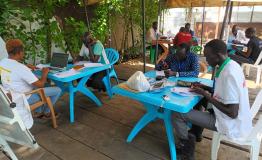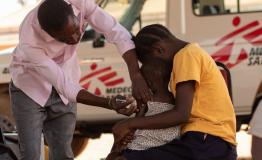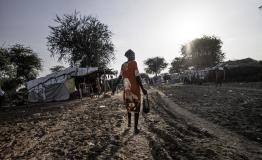When South Sudan experienced three consecutive years of a prolonged rainy season in 2021, nothing prepared communities and humanitarian workers for the devastating effects of what would culminate into catastrophic flooding affecting more than 800,000 people.
The heavy downpours caused the River Nile to burst its banks, releasing huge volumes of water into the villages of Jonglei State in the north of the country. In its wake, homes, plantations, livestock, and people's livelihoods were destroyed. People were driven out of their homes and forced to take refuge in makeshift shelters and tents, relying on the assistance provided by humanitarian organisations such as Médecins Sans Frontiers/Doctors without Borders (MSF).
Boniface Ojode was among the team sent in by MSF to conduct a health needs assessment and provide medical intervention across the hard-hit State located in the Greater Upper Nile region in the Eastern center of South Sudan.
“My time in South Sudan was particularly striking. The floods had left behind a devastating effect on people. Fish was the only source of food, thanks to the raging waters, as well as food rations from humanitarian organisations,” said Boniface.
The effects of the flooding, coupled with already existing poor living conditions and limited access to food and clean water, provoked a health crisis in the region. MSF delivered emergency healthcare through mobile clinics and in hospitals and health centres.
“During our mobile clinic programmes, we slept in tents alongside those we were there to support. Despite the limited access to electricity and risk of exposure to the elements, it was the only way to ensure we provided care to our patients,” he said.
Several cases of malaria, malnutrition and snake bites were reported as well as cholera because of the limited access to clean water and sanitation.
As a Health Promotion and Community Engagement Supervisor, Boniface was tasked with facilitating access to communities. “I would go ahead of the team to engage with community leaders and secure approval to provide medical services to members of the community. If permission was granted, the rest of the team would arrive the following day.”
Reaching affected communities was incredibly challenging for Boniface and his team, as the floods had created ‘islands’ that people were stranded on, isolating them from crucial social amenities including medical facilities. The teams had to hire the services of speed boats to ferry medical workers and supplies to the Jonglei Islands.
“We would occasionally be blocked by water lilies which forced us to wade through the water to manually clear the way before proceeding to our destination. One day when we were making our way to run a clinic using speedboats, we were attacked by bees.” “For three months we weathered these obstacles and more, to ensure we could reach those who were marooned on the islands,” said Boniface.
Despite the challenges, Boniface felt his efforts were worthwhile, “I am greatly honoured to have been a part of a team that was willing to traverse great lengths to reach the unreachable in order to provide much-needed humanitarian aid.



